Love, sex or mauka: how dating apps are cutting to the chase
The loud music drowns most of his words. But from the louder shrieks and laughter of his friends around, I know he is the guy I am looking for.
Twenty-three-year-old Raj (let’s call him that for now) is giving away their secrets to a total stranger -- me. “Yes, she is on Tinder,”…“Haha, he does not get any likes,”… “Ah! this one’s girlfriend is on Tinder and he has swiped her left.” Denials flow thick and fast around the table and mock fights erupt amid a lot of giggles and bantering.
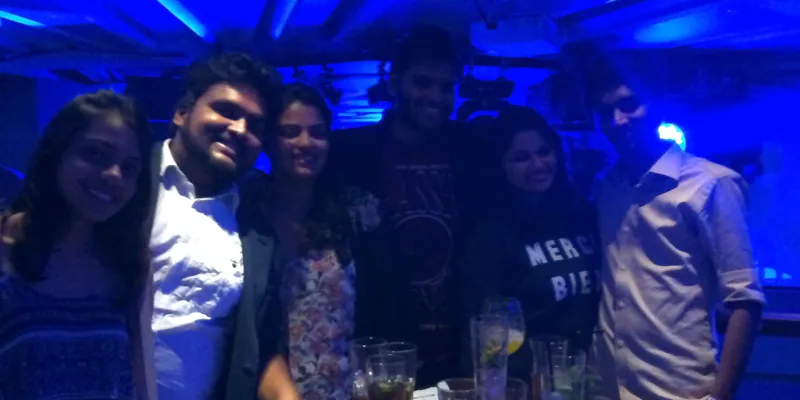
The world in our pockets
This circle of friends at an upmarket nightclub in the heart of IT city, Bengaluru, is surely not one of a kind. The millennials are making their presence felt everywhere. They have freedom and access like never before – riding on the touch of the magic screen on their smartphones.
How then is this mobile revolution changing the attitudes of the next gen of young boys and girls in India? And more importantly, how is it influencing the choices they make? How do they view relationships? Are they really as promiscuous as the media would have us believe? Where does love figure in their scheme of things?
Unable to find satisfactory answers to my questions, I traded a quiet evening at home with driving through traffic snarls to a nightclub to figure out what the millennials, half my age, are thinking (or rather, doing).
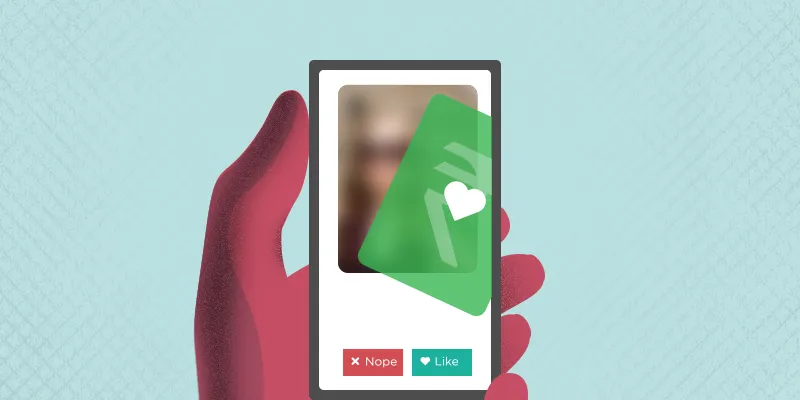
It has been a year since Raj and his friends graduated from a premier college in the state and are now working in the city. Raj hangs out with his buddies on weekends, has a girlfriend, is not shy to admit that he used to be on dating apps but is less active now. Almost all his friends are using or have used dating apps; the girls though, are not so forthcoming in admitting that.
It all boils down to gender, age, and distance
By now most of the liquid in their glasses is consumed and the volume of the music is pumped up. It’s time I left them alone to enjoy the evening. One thing is clear, though.
If I were to write this story in just three words it would be gender, age, and distance.
These three words best define the new dating paradigm. If you are looking for a date you can get it instantly. Well, at least, you'll get access to the gender of your choice; what happens next is still your karma.
For the uninitiated, dating apps work on the premise that you are either looking for a man or a woman, that you will have age criteria, and that you’d like that person to be somewhere in the vicinity near you so that if all goes well you’ve got your evening sorted.
Being on a dating app is like walking into a room full of beautiful people and realising you could date all of them. You have the power to choose as you please. You make your destiny just by the direction in which you swipe on the mobile screen. Left, if the person’s not right for you. And right if, well, the person is right for you.
But what does ‘dating’ imply in India? Is it just a hookup for the evening or is it a quest to form a long-lasting relationship that will finally lead to the altar? Able Joseph, Founder and CEO of Aisle, a dating app that claims it is tailor made for long-term relationships, says,
“I think casual hookups, short-term affairs, long-term sustainable relationships, and infidelity -- all come under the umbrella of what we simply refer to as 'dating'. And dating apps in India facilitate all of this.”
With 38,000 “hand-picked” users from 60 plus countries, Able claims that 25 percent of their user base has connected with somebody they were genuinely interested in meeting. “Compared to men, urban women are almost as pro-active in reaching out to men who meet their own set of expectations,” he says, sharing his insights into human behavior, adding, “though single Indians under 24 are less likely to pay for a dating service.”
That should not be a concern because last year this sector was flush with VC funds, and startups like iCrushiFlush, Banihal, TrulyMadly, Plush, and Dil Mil, including Aisle received a lot of VC love.
I’m willing to lie about how we met
International dating apps like Tinder, OKCupid, and Hinge too entered India, tweaking their marketing strategy to balance local values with global dating trends. Not surprisingly, Tinder appeared to be almost the first choice of every person I spoke with. Yet there was some hesitation from them in admitting to it, probably because of its reputation in the US and Europe as a place only for hookups. There’s a joke among millennials about using dating apps, and the tagline says, ‘I’m willing to lie about how we met.’ So yes, they seek serendipity but it better be instant.
“Platforms like dating sites have made people impatient. They want instant gratification. It’s like tell me whether it is a yes or a no now. I think it has made relationships less complicated,”
a 23-year-old male colleague tells me. That is one of the perks of working with younger people. You get a good view of their world.
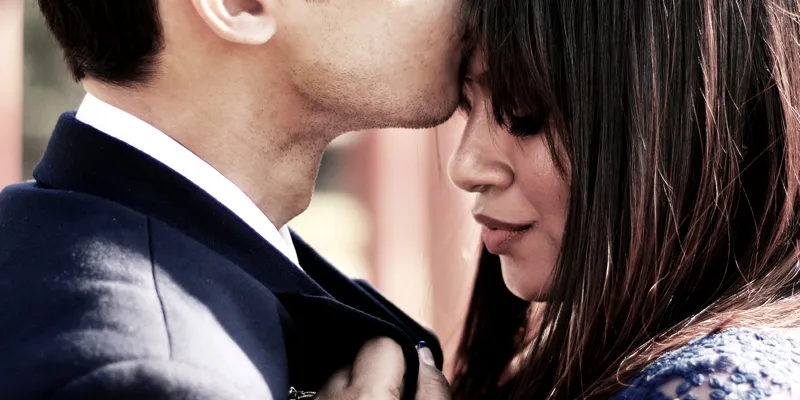
I am now hounding all the 20-plus people around me, asking them to connect me to their friends who use dating apps. A 27-year-old friend of a colleague who lives in Mumbai says she moved to dating apps because she is actively looking to find her Mr Right and ‘settle down’. “I tried matrimonial sites a couple of years ago, but found that the men there are guarded and ask you questions probably their parents want to ask like wanting to see my horoscope,” she says.
She went on three different dates through three different dating apps. None of them worked out, but the third was the edgiest of the lot, she tells me. “So I liked this guy. He was very good looking with a gym-toned body. He had also liked my profile so we were matched. We communicated over WhatsApp, finding out things about each other and then he suggested we meet.” On their first date, he turned up late at the coffee shop but quickly charmed her into staying back.
“He was openly flirting with me. Taking my hands in his, running his fingers through my hair. I loved all the attention, but I knew at the back of my mind that this will not work out in the long term.”
She adds that they went out for dinner after that, but she put her foot down when he insisted they go for a drink or two to a pub. “For the next few days, I was on cloud nine. I had this massive crush on him,” she says, adding, “but I called it off because I was not looking for one-night stands.”
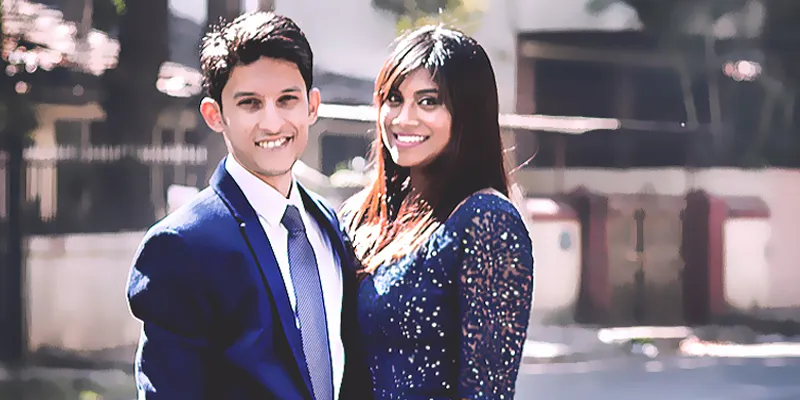
For Nelly and Rishab, a couple living in Mumbai, things turned out differently even though neither was on the dating app to find love. “I was more interested in meeting like-minded people with whom I could grab a drink or dinner. Rishab and I matched one day, and our relationship just grew,” she says. Rishab adds that he was on Tinder because his work as a web developer demanded that he research these apps. “It was a curiosity for me and I found it interesting to read what people had written about themselves,” he says. The two got engaged last December. Adds Nelly,
“Tinder is pretty much what you make it.”
According to Vijay Nagaswami, Chennai-based psychiatrist, who counsels couples and is an author of books like The 24X7 Marriage, The Fifty-50 Marriage: Return to Intimacy, and 3’s a Crowd: Understanding and Surviving Marital Infidelity, says, “The reason dating apps are catching up in India is because we do not have enough spaces to find like-minded people. In the West, these apps are probably just another way to expand choices, but in our country, it is proving to be the only choice.” Nagaswami feels that as a nation we are also not into activities like trekking or sports etc, which in turn limits our social circle, making young people fall back on these apps.
A 24-year-old Mumbai-based woman, introduced to me through a mutual friend, echoes Nagaswami’s views. “I really do not have much time to socialise after a hectic day at work. So these apps are a good way to find like-minded people,” she says. However, after a couple of “horrible” experiences, she has uninstalled these apps.
“I found two types of men on these apps – one set is creepy and the other boring.”
She’s had people trace her to her LinkedIn and Facebook pages to proposition. “In fact, one more thing I found was that I was seeing a lot of my colleagues on these apps,” she adds laughing.
Evolution of love
When it comes to love, psychologists often get away explaining it through Darwin’s theory of natural selection. Neil McArthur, a philosopher at the University of Manitoba in Canada, in an excellent essay in Aeon, presents a good argument questioning if humans will ever be liberated from the basic biological needs that drove our evolutionary past? He writes, “…we are also in the midst of a massive social transformation that is giving us more sexual freedom than we have ever had before. If evolutionary theory can help us to navigate this dizzying new world, we ought to be willing to listen. After all, we need all the help we can get. Humans have had to adapt to a wide variety of ecological niches, and we have done so with remarkable success, and part of that could be due to our sexual plasticity, which allows us to calibrate our sexual behaviour to fit our environment.”
The dating apps here in India too are showing up new behaviours that could make for interesting academic study. For instance, the girls get more matches than guys; girls think guys on the apps are desperate, and guys think girls, who are not desperate, should not be on dating apps.
A 25-year-old acquaintance tells me, “I clicked with this guy on Woo, and after we had chatted for a couple of weeks, he asked me why I was on a dating app because I seem to be such a ‘nice’ person and not at all ‘desperate’ to hook-up.”
To be fair to the guys, as one of them told me when I went prowling at the nightclub. “I am a decent guy. But girls somehow seem to ignore me on the dating apps. Perhaps, my pictures are not of a poster-boy variety,” he says, putting on a look of resignation for my benefit.
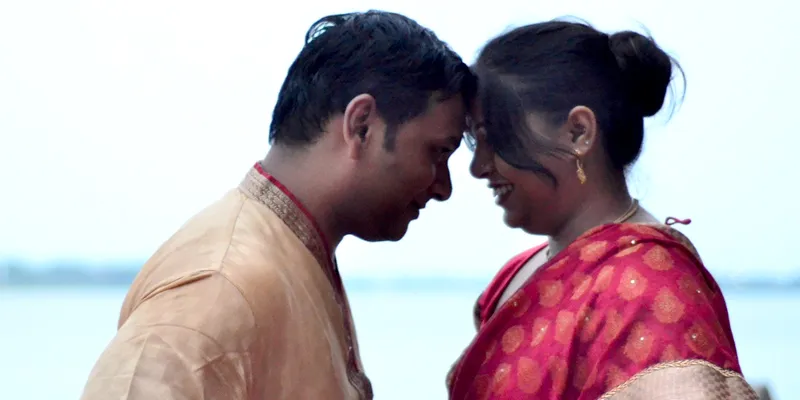
Bu as the popular ‘couple’ of TVF Pitchers advises, “Be on the dating apps, your chances of finding someone will increase.” A fact Riti and Arnab can attest to. “I was actively looking for a long-term relationship when I turned 27. After having tried a number of dating apps, I finally found Arnab on Aisle.”
The two will celebrate a year of togetherness in April. Riti says,
“Thankfully, we have remained the same people before we met, and because we were very open with each other about our shortcomings, we’ve not had to find unpalatable truths about the other after marriage.”
Though, Riti claims that all the hard work around finding the right person did take away the romance but it was worth going through the trouble because of her happy ending.
A blogger friend writes in her musings for the Valentines’ week, “Recently, I watched The Lunchbox and Piku in one long stretch to reassure myself that the world was still made up of serendipitous conversations tucked in fleeting moments when strangers make soul contact.” Ruing the loss of simple times of days gone by. Be that as it may, instead of little notes left in lunch boxes or borrowed books, the millennials may well find their moments via their smartphones, how does it matter.







